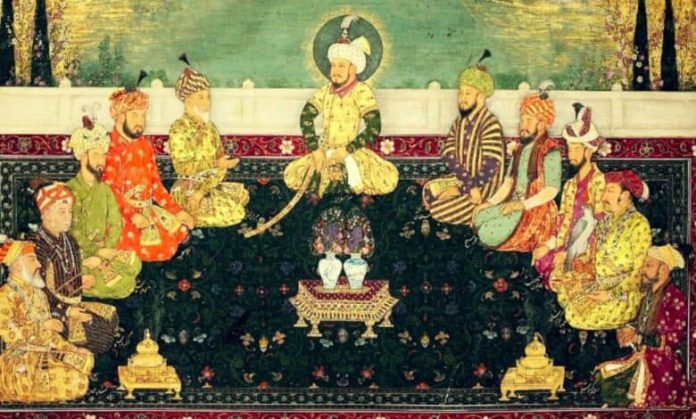New Delhi – The National Council of Educational Research and Training (NCERT) has sparked widespread debate with its newly revised Class 8 history textbook under the National Education Policy (NEP) 2020 and National Curriculum Framework for School Education (NCFSE) 2023. The book describes prominent Mughal rulers such as Babur, Akbar, and Aurangzeb as “mass murderers” and “destroyers of temples,” triggering strong reactions from historians, educators, and civil society, reported the Siasat.
Titled Exploring Society: India and Beyond (Part 1), the textbook covers Indian history from the 13th to 17th century, including the Delhi Sultanate, the Vijayanagara Empire, the Mughal period, and the rise of Sikhism. A chapter titled Reshaping India’s Political Map features graphic descriptions of Mughal conquests and alleged atrocities.
Babur, the founder of the Mughal Empire, is called a “brutal and ruthless conqueror” who “slaughtered entire populations” and “erected towers of skulls.” Emperor Akbar, often portrayed in earlier books as a symbol of tolerance, is now described as having “brutally massacred 30,000 civilians in Chittorgarh” and as someone who aimed to erase non-Islamic elements by destroying temples. A quote attributed to him in the book claims, “With the help of our bloodthirsty sword, we have erased the signs of infidelity… and destroyed temples.”
Aurangzeb is depicted as a “destroyer of temples, gurudwaras, and schools” across several regions including Mathura, Varanasi, and Somnath. The textbook also points to his re-imposition of the jizya tax on non-Muslims, labeling it a tool for humiliation and religious coercion.
In contrast, the book portrays Maratha ruler Chhatrapati Shivaji Maharaj as a secular and visionary leader who respected all religions and worked to rebuild temples.
A controversial new section titled Note on Some Darker Periods in History emphasizes that contemporary citizens should not be held accountable for historical wrongdoings, appearing to offer a disclaimer to blunt potential backlash.
Responding to the criticism, an NCERT official defended the changes, stating, “The textbooks are balanced and entirely evidence-based. We are not sanitising Indian history. The goal is to present facts with clarity while including cautionary notes to avoid communal blame.”
This revision follows previous textbook changes where chapters on the Mughals and Delhi Sultanate were removed from Class 7 curriculum. During the 2022–23 pandemic revisions, NCERT had already trimmed chapters on Muslim dynasties like the Khaljis, Tughlaqs, and Lodis.
The updates have sparked sharp criticism from academic circles accusing the NCERT of ideological bias and distortion of history to suit contemporary political narratives.
NCERT textbooks are used by over four crore students annually and play a crucial role in shaping historical understanding for young learners. These changes are likely to continue fuelling debates over the politicization of education and the rewriting of India’s medieval past.




